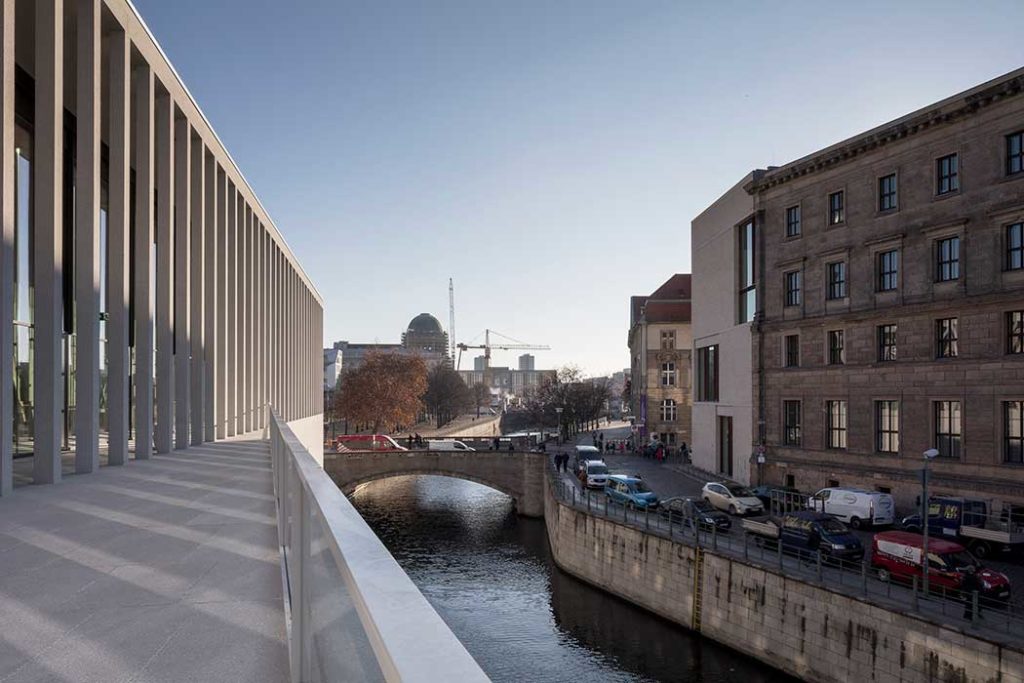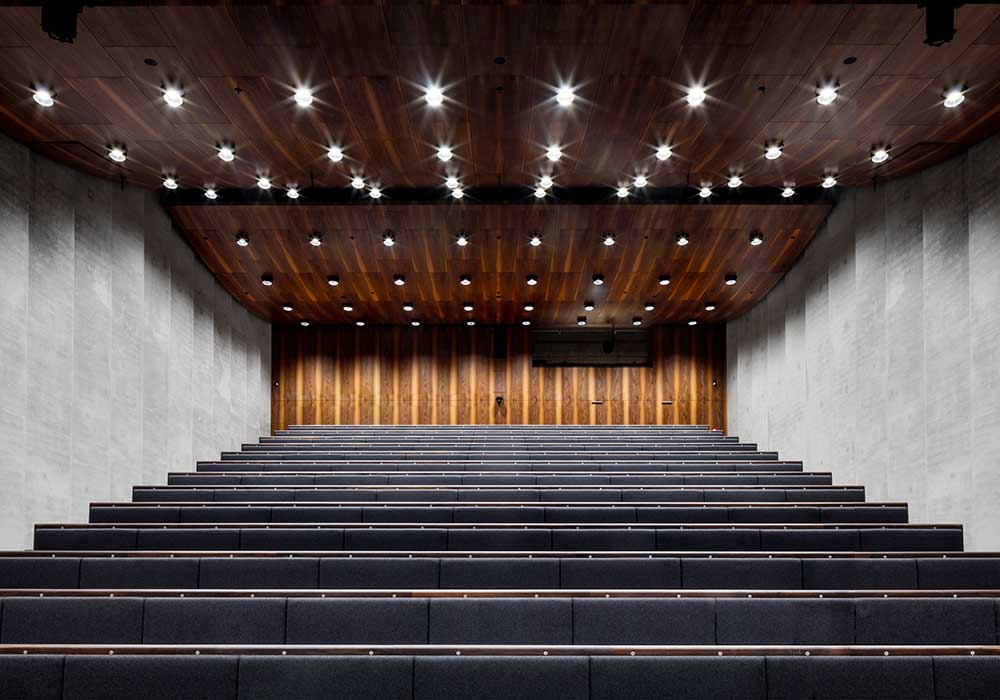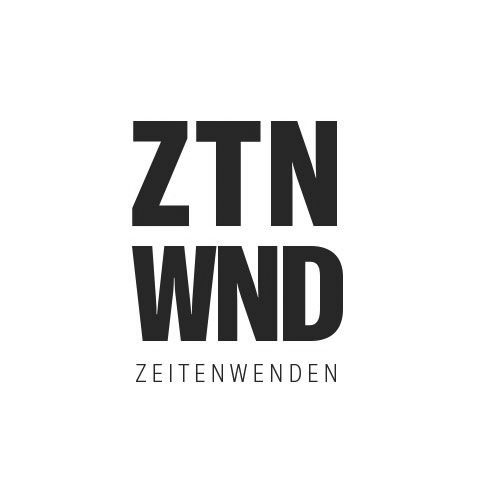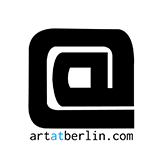Today, October 29th 2019 at 7 pm, an interdisciplinary series of events by the National Museums in Berlin will begin in the auditorium of the James Simon Galerie “Weitwinkel – Globale Sammlungsperspektiven”. Based on current exhibitions, research projects and cooperations of the National Museums in Berlin, it deals with transcultural themes and socially relevant issues. The series can be visited free of charge and will be continued next year after three further dates in 2019.
Image above: James-Simon-Galerie, Auditorium, © Ute Zscharnt für David Chipperfield Architects
How did the collections of the National Museums in Berlin come into being and what significance do they have today in a global context? How are acquisitions from the colonial period dealt with? Which cross-cultural connections and stories are hidden behind the objects? And what tasks do museums have today? Through lectures, panel discussions and workshop reports, colleagues from the individual collections as well as international speakers deal with these questions and offer diverse insights into their work. Cooperation with representatives from societies of origin plays just as important a role as the inclusion of non-European contemporary positions in the dialogue with European art. In addition, possible approaches to the concerns of our society will be reflected upon and discussed with the public from a critical perspective.

Design macht Museum – Reflections on a Global Museum of Decorative Arts
Tuesday, October 29th 2019, 7 pm
In the complex discourse on postcolonial museums, museums of applied arts have not been much in the spotlight, perhaps because at first glance they appear to be neutral museums or have seen little reason to deal with their colonial history. The fact that they still collect and exhibit almost no applied art, design, textiles or fashion from Africa and the rest of the global South is due to the fact that ethnological or ethnological museums were founded around the same time in the 19th century. One of the colonial legacies of the arts and crafts museums is the implementation and continuation of those classification systems that characterise design and fashion as a primarily Western phenomenon. In the academic design cosmos, too, design practices outside the Anglo-European world were neither taken seriously nor reflected in discourse until a few years ago. Neither were critical questions about gender, social class, culture, political and economic contexts. Based on the current special exhibition “Connecting Afro Futures. Fashion – Hair – Design”, traditional narratives and collection practices of design and fashion are questioned and perspectives for a global arts and crafts museum are explored.
Lecture in German langage with Claudia Banz (Museum of Decorative Arts – National Museums in Berlin), Welcome and introduction to the series: Christina Haak (Deputy Director National Museums in Berlin)
Duration: ca. 60 Minutes
Museums and the Islam debate – how political are cultural institutions?
Saturday, November 23rd 2019, 6 pm
For more than a decade, the question of how a diverse society shaped by migration can be shaped has been the subject of domestic political debate. Muslims are a particular focus of this debate. More and more the fronts seem to harden and those who stir up fears of “Islam” are gaining power – the latest election results bear witness to this. Museums and collections of Islamic art are therefore faced with the question of how political they must be in today’s situation. To what extent do they have the task of shaping social change with a clear attitude? How can they develop contents from their collections that provide answers to the questions of a changing society? Which formats are suitable You’re in favor? And how can they respond to the danger of not being for the Muslim but to give it a voice?
Panel Discussion in English language with Massumeh Farhad (Arthur M. Sackler Gallery and Freer Gallery of Art, Washington), Lamya Kaddor (Universität Duisburg-Essen), Yannick Linz (Louvre Museum, Paris) and Stefan Weber (Museum für Islamische Kunst – Staatliche Museen zu Berlin), Moderation: Reinhard Fischer (Berliner Landeszentrale für politische Bildung)
Duration: ca. 90 Minutes
Tanzania – Germany: Divided Object Histories? – a workshop report
Tuesday, November 26th 2019, 6 pm
What constitutes (postcolonial) provenance research in so-called ethnological collections? In the research project “Tanzania/Germany: Divided Object Histories?” at the Ethnological Museum of the National Museums in Berlin, this is one of the questions being investigated. The starting point is formed by selected objects and object groups from the collections of more than 10,200 objects from what is now Tanzania. The majority of these came to Berlin during the violent German colonial expansion and rule in East Africa. The processes of appropriation were as complex as the colonial situation itself. In the workshop report, the cooperative formats tested in the project with Tanzanian scholars, experts and artists are examined, results of the research in the form of object-biographical fragments are presented and the following questions are addressed: How can we work with the colonial archives as sources and read them against the grain? To what extent does cooperative provenance research run the risk of reproducing imaginations and knowledge systems that are partly based on colonialism – especially against the backdrop of the current debate on restitution, provenance research and cooperation with so-called societies of origin?
Workshop report in German langage with Kristin Weber-Sinn (Ethnological Museum – National Museums in Berlin)
Duration: ca. 60 Minutes
The Concept of Your Interpretation – Challenging the Colonial Archive through Art and Research
What stories can colonial collections tell? What visions of the future can be developed with them? Within the framework of a partnership between the Museums Association of Namibia (MAN) and the Prussian Cultural Heritage Foundation, several female researchers from Namibia have been guests at the Ethnological Museum since the spring of 2019. Museum of the National Museums in Berlin. Together with the team of scientists from the museum they examined the approximately 1,400 objects of the Namibia Collection with regard to its history, significance and artistic potentials. Cynthia Schimming has developed her expertise as a Fashion historian and designer and the experiences of her Herero family in the this research process and created an art installation, which back to the colonial past as well as forwards into a new era. creative future. Her work is set against the traumas of colonial violence and genocide. But it also understands the collection as an archive Namibian arts and crafts and designs and weaves historical experiences with a self-confident repositioning in the post-colonial present. In panel discussion, she will give an insight into her artistic research process and presents the artwork that will be presented at the Humboldt Forum.
Panel Discussion in English language with Cynthia Schimming (Museums Association of Namibia) and Julia Binter (Ethnologisches Museum – Staatliche Museen zu Berlin)
Duration: ca. 60 Minutes
The series will be continued in 2020.
Further information and current dates: www.smb.museum/weitwinkel






